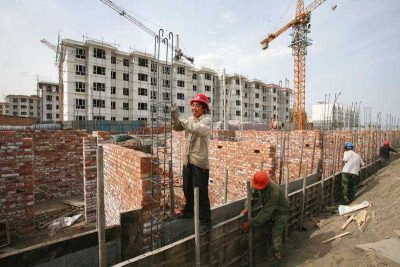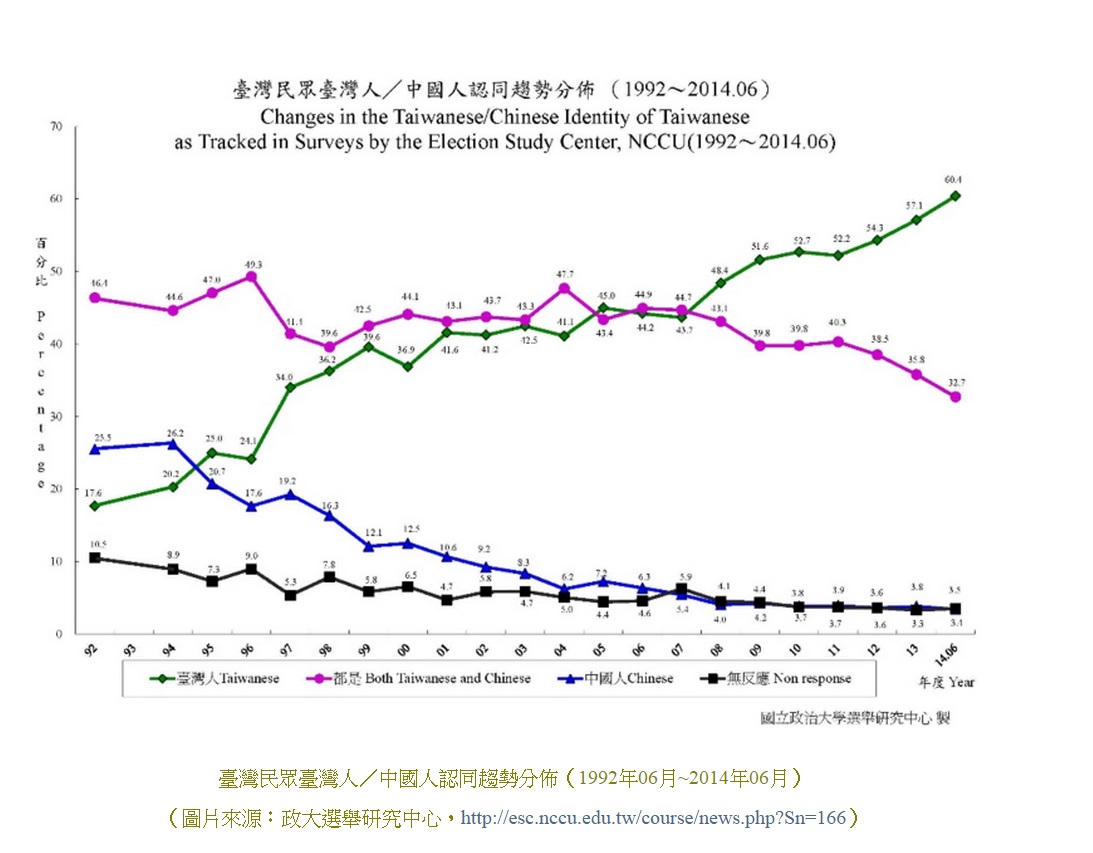This is a very thoughtful little essay from Yu Keping, dean of the school of government at Beida. It is hard to see how the Chinese government’s praxis could be out of line with such clear thinking. And yet it is. ‘Democracy’ remains one of hundreds of terms that you cannot search for on the Chinese Internet.
The original article is posted here, on the site of The Conversation.
Crossing the river by feeling the stones: democracy’s advance in China
April 15, 2016 1.31am BST
Author
Chair of Politics, Professor and Dean at the School of Government, Peking University
The Conversation is funded by the following universities:Aberdeen, Anglia Ruskin, Bangor, Bath, Bath Spa, Birmingham, Bradford, Brighton, Bristol, Brunel, Cambridge, Cardiff, Cardiff Metropolitan, Central Lancashire, City, Coventry, Durham, Edge Hill, Edinburgh Napier, Essex, Exeter, Glasgow, Glasgow Caledonian, Goldsmiths, Heriot-Watt, Hertfordshire, Huddersfield, Hull, Kent, King’s College, Lancaster, Leeds, Leicester, Liverpool, Loughborough, LSE, Manchester Metropolitan, Newcastle, Northumbria, Nottingham, Nottingham Trent, The Open University, Oxford, Queen Mary University of London, Queen’s University Belfast, Royal Holloway, Salford, Sheffield, Southampton, Stirling, St Andrews, Surrey, Sussex, UCL, Warwick, Westminster and York.
It also receives funding from:Hefce, Hefcw, SAGE, SFC, RCUK, The Nuffield Foundation, The Ogden Trust, The Royal Society, The Wellcome Trust, Esmée Fairbairn Foundation, The Alliance for Useful Evidence and Lloyd’s Register Foundation.
Renowned as one of China’s leading political thinkers, Yu Keping from Peking University featured in this year’s Encounter hosted by the Sydney Democracy Network (SDN) at the University of Sydney on April 12. His article is a contribution to the Democracy Futures series, a joint global initiative with SDN. The series aims to stimulate fresh thinking about the many challenges facing democracies in the 21st century.
To say “democracy is a good thing” means that democracy can benefit the people. Yet if democracy is to benefit the people, a precondition is that social order must be maintained and hardship shouldn’t burden them. If democracy causes unrest, the people will lose hope, corruption will go unchecked. Under these circumstances, who would still wish for democracy?
Those who are against democracy often use this possibility to frighten their audience. The truth is that there is much evidence to show that the advancement of democracy will not necessarily produce disorder. Just the opposite: over the long term, it is only democracy and the rule of law that will provide for the long-lasting peaceful rule of the nation.
Direction
The China dream is about supporting the great revival of the Chinese nation. This revival includes many things, but a high level of democracy and the rule of law are an indispensable part of the vision.
The movement towards democracy everywhere is a political trend that cannot be reversed. China is no exception. Sun Yat-sen once said:
Worldwide trends are powerful. Going with them will bring success, going against them will bring disaster.
The main global trend he referred to was nations becoming independent, countries growing wealthy and strong, and their people wanting democracy. Today, when we speak of political civilisation, we mainly refer to democracy and the rule of law.
Democracy is the lifeblood of our republic. The central meaning of “The People’s Republic of China” is that the people are the masters and make the key decisions. The 16th Party Congress emphasised that intra-party democracy is the lifeblood of the party; the 17th Party Congressemphasised that the people’s democracy is the lifeblood of socialism. It is no longer a matter of whether or not one likes democracy: democracy is a trend that cannot be blocked.
The political development of socialism with Chinese characteristics is in fact the organic unification of three things:
… the leadership of the party, the role of the people as masters and decision makers; and the ruling of the nation in accordance with the law.
The sovereign people are at the heart of these three components. The goal is to enable “the people to be the masters”. In the final analysis, the “leadership of the party” and “the rule of law” serve to ensure that the people are the masters.
The 18th Party Congress emphasised the same point: the people must indeed remain the masters. The continual advancement of democracy and the rule of law is the historical responsibility of those in the Communist Party. This is our correct direction.
Timing
The delay of political democratic reforms in China will breed a host of problems. If there are no breakthroughs in the reform of key policy areas, then illegal corruption may turn into legitimised special privileges.
The achievement of democracy depends on real-world conditions. It needs to be linked to economic and cultural realities and the actual foundations of society. As we discovered when “running towards communism”, rushing ourselves will not work; it will bring disastrous consequences.
But moving too slowly in matters of democratic political reform will also not work; the problem of corruption that we hate to the bone won’t be solved. The fact that corruption, until this day, hasn’t been effectively controlled is linked directly to the slow pace of reforms, as are such dilemmas as publishing the property holdings of officials and dealing with declining public trust in government.
Identifying the proper timing of political reforms is the responsibility of politicians, who need to have great wisdom and be willing to take action. Of these qualities, willingness to take action and a sense of responsibility are most important.
Handing over a weighty responsibility: Hu Jintao congratulates his newly elected successor as president, Xi Jinping, in 2013. Reuters/China Daily
Route
To deal with its problems, China, as a great power, must draw up a clear roadmap for political reforms.
I have always believed there are three routes from which to choose: the first is a transition from intra-party democracy to social democracy. The 16th, 17th and 18th Party Congresses have consistently emphasised this point. Democratic development needs to choose a pathway that is most efficient and exacts the lowest toll.
The second pathway is a transfer from grassroots democracy to upper-level democracy. Grassroots democracy is directly aimed at the common people, to bring them direct benefits.
In political life, the ideal situation is that the people trust all levels of government. In reality, China is the exact opposite of America: American citizens have a very low level of trust in the federal government.
We (in China) have high levels of trust in the central government, but our trust in base-level government tends to be lower. “If the base level is not solid, the ground will shake and the mountains will sway.” We need to pay attention to this possibility.
The third pathway involves a shift towards greater political competition. Democracy requires competition: without competition, how are we to elect the most outstanding individuals?
Our democracy will naturally be one with Chinese characteristics. But democracy cannot be separated from elections and competition. Consultative democracy is very important, but consultation should not exclude elections.
Methods
Democratic development in China requires achieving a balance among six policy areas:
1 We want democracy and we also want the rule of law. Democracy and the rule of law are two sides of the same coin. Any politician who speaks of democracy cannot avoid discussing the rule of law, looking to the experience of the West, or to the experience of our nation, China.
2 We want deliberation and we also want elections. Chinese democracy, to a great degree, is in fact deliberative in nature; deliberation is part of our historical traditions. Elections, on the other hand, are the product of the modern world. Democracy is naturally inseparable from elections: the two need to be combined.
3) We want freedom and we want equality. These are basic values of democratic governance. In the past, we have over-emphasised equality. Since the reforms began, freedom has been emphasised, to the point where equality and liberty are in great tension.
4) We want efficiency and we want justice. These are two indispensable basic values. In the early stages of the reforms, the issue of efficiency was more salient, but now the issue of justice becomes central.
5) We want participation and we want order. Political scientist Samuel Huntington once said that the greatest challenge for political modernisation is to manage the relationship between public participation and political stability. As the interests of different social groups become more diverse, the desire of citizens for participation becomes more intense by the day. We need more open channels for political participation. Without legal channels, citizens will certainly resort to irregular, or even illegal channels, and social unrest will result. Democratic participation then becomes problematic.
6) We want a balance between individual rights and public rights. Rights belong to the individual, and the legal rights of citizens are guaranteed by the constitution. But we also need public rights, because our nation and society are a community.
The impacts of Chinese economic reform can be seen in Shenzhen. flickr/Blake Thornberry, CC BY-NC-ND
Strategy
China is facing many reform challenges, and we need to get a firm grip on the most important of them. We must discover those breakthrough reform points that enable us to “move the entire body by pulling one strand of hair”. The restraint of power through intra-party democracy is among these most important breakthrough points.
There needs to be better overall planning; put in terms of mainstream political thinking, “scientific development” is needed. This means that economic development needs to be combined with political development, social development and cultural development. There need to be upper-level designs and reasonable plans based on facts.
What is also needed is an institution responsible for co-ordinating different interests, especially at the level of the central government. Governmental reform should be matched with Party reform.
There also needs to be continuous testing and expansion of reforms, so that we “cross the river by feeling the stones”. Many reforms that have been effective have suffered from discontinuity. The problem is that when politicians leave office their policies often lapse, or are not institutionalised.
To overcome this weakness, efforts need to be made to achieve advances in areas of greater strategic importance. We speak much about supervision, but too little about restraints. We speak even less of restraints on leaders at all levels of the Party.
Everyone fears that advancing democracy will cause a loss of order and will bring social unrest. Everyone meanwhile hopes that by strengthening democracy we can maintain social stability.
However, as I see it, it is only through the deepening of reforms of our political system, and through the genuine advancement of democracy and the rule of law, that we will be able to provide for the long-lasting peaceful rule of our nation, enabling democracy to benefit the people.

